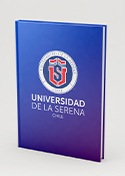Browsing by Author "Castro-Carrasco, Pablo"
Generating Subjective Theories After a Disaster: The Role of Personality Generación de teorías subjetivas después de un desastre: el papel de la personalidad Geração de teorias subjetivas após um desastre: o papel da personalidade
(2021) González-Palta, Ingrid; Castro-Carrasco, Pablo; Cabrera, Enzo; Jamet, Paulina; Leal-Soto, Francisco
The role of people's beliefs in their perception of disasters has been scarcely studied. In this study, we analyzed how people who experienced an earthquake and a subsequent tsunami employ subjective theories (ST) to explain their traumatic experience. This study aimed to interpret the explanations developed by a group of people about the earthquake and tsunami that took place in Chile in 2015. Thirteen episodic interviews were conducted as part of a qualitative case study. The participants' theories were grouped into four categories: the impact of personality on one's reaction to hardships; the existence of a link between personality and coping styles; the limited influence of personality on one's way of coping with difficulties; and changes in personality after experiencing hardships. These findings are discussed analyzing whether the participants' explanations could foster personal growth and psychological well-being after the catastrophe.
Relationships between Pedagogical Practices and Affective States for Effective Teaching during the COVID-19 Pandemic: Insights from University Professors
(HLRC, 2024) Bruna, Carola; Villaroel, Veronica; Sánchez, Alejandro; Cortes, Joaquin; Castro-Carrasco, Pablo; Conejereso-Solar, Maria Leonor
Objectives: This study aimed to analyze how pedagogical practices and affective states during emergency remote teaching influence professors’ perspectives on their capabilities and the professor-student relationship.
Method: We used a nonexperimental quantitative design, collecting data through an online survey during the first year of the pandemic. Participants were recruited using a non-probability sampling method. A total of 636 university professors from Chilean universities participated. We performed descriptive and correlation analyses between variables. Also, to gain a deeper understanding of the factors influencing perceptions of the professors’ competence and the professor–student relationship, we conducted linear regression models.
Results: A higher perception of pedagogical competence was related to male professors reporting a high evaluation of teaching quality and a high diversification of assessment strategies. A better professor–student relationship was related to female professors reporting a high level of tutoring activities and activities in which students work collaboratively. Additionally, unpleasant affective states were experienced at a higher rate by younger and female professors.
Conclusions: Variables that make up the perception of professor competence and the professor–student relationship were identified, relating to gender and pedagogical practices, such as diversification of assessment strategies, tutoring, and collaborative activities.
Implications: The results can guide future institutional actions to improve conditions and establish guidelines for quality virtual education in the post-pandemic scenario.
Subjective theories of the Chilean teachers’ union about school climate and violence after the pandemic: a study of web news
(Frontiers in Education, 2024) Castro-Carrasco, Pablo; Cuadra-Martínez, David; Gubbins, Veronica; Rodríguez-Pastene-Vicencio, Fabiana; Carrasco-Aguilar, Claudia
Introduction: The COVID-19 pandemic increased school violence and worsened the school climate in Chile. In Chile, punitive control policies such as the Safe Class Law (Ley Aula Segura) have been adopted. A key actor in the public debate is the Chilean Teachers’ Union, due to its potential impact on new public policies on the issue. Objectives: The aim of this study was to reconstruct the subjective theories of school violence and school climate presented by the Chilean Teachers’ Union after the COVID-19 pandemic, in its public discourse broadcast on the web news. Methods: Based on a documentary study, a case study design and qualitative methodology, embedded in the FONDECYT project No. 1231667, titled “The social construction in Chile of school climate and school violence after the return to face-to-face education,” web news (N = 36) were analyzed in which the Chilean Teachers’ Union explains school violence and school climate after the pandemic. Results: We found subjective theories that explain the meaning of school violence and school climate, and external factors associated with the serious deterioration of these educational dimensions after the COVID-19 pandemic. Accordingly, we obtained a set of measures such as inclusive policies, curriculum, participation in the development of educational policies, and refunding public education that teachers propose to solve these phenomena in the future. Discussion: In the context of a union that has historically considered public policies to be non-participative in their formulation and distant from the schools’ reality, these findings have important implications for understanding the arguments of the Teachers’ Union about the need to improve mental health and working conditions as crucial elements for addressing school climate and school violence. Copyright © 2024 Castro-Carrasco, Cuadra-Martínez, Gubbins, Rodríguez-Pastene-Vicencio, Carrasco-Aguilar, Caamaño-Vega and Zelaya.
